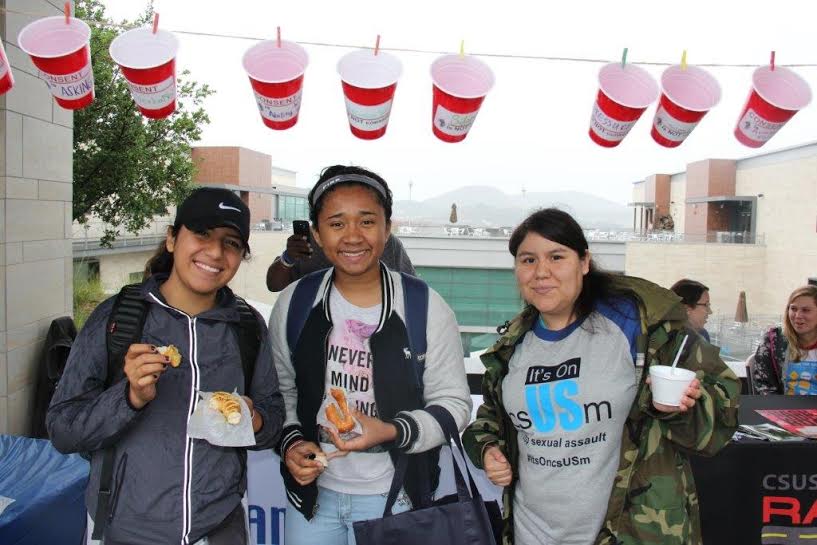National initiative helps students understand the effects of alcohol
April 13, 2016
Student Health and Counseling Services (SHCS) partnered with the H.O.P.E. and Wellness Center to host confidential alcohol addiction screenings as part of National Alcohol Screening Day.
The screenings were conducted from 11 a.m. to 1 p.m. on April 7 in the USU Arcade, where students filled out forms which were then scored by faculty from SHCS along with volunteers from CSUSM’s nursing program. These scores indicated whether a student is at no risk, moderate risk or high risk. After scoring, licensed psychologists from SHCS were on-site to provide brief consults for students based on where they fell on the spectrum of consumption.
An extra round of screenings were done on April 8 in The QUAD which brought 30 more screenings.
A total of 184 screenings resulted from both events and screenings are available online year-
round.
National Alcohol Screening Day is a health initiative conducted on the second week of April across the United States at college campuses, hospitals, clinics, allied health services and other parts of the public sector.
The movement brings awareness to the dangers associated with alcohol by providing people with access to health screenings as well as information about the effects of alcohol abuse on both drinkers and nondrinkers.
Binge-drinking and understanding blood-alcohol concentration (BAC) were two of the topics covered by volunteers and peer educators from SHCS.
“Many students already come to college with some experience with alcohol and establish drinking habits, and we realize … that the college environment can exacerbate that for some students because of the freedoms they have,” said Cheryl Berry, SHCS Mental Health Educator.
Other campus and community allies like Aware, Awake, Alive, Safety, Risk & Sustainability Services (SRS), Recording Artists Against Drunk Driving (RADD) and It’s On Us also contributed to the event by educating participants, focusing on particular subjects associated with drinking.
Aware, Awake, Alive is an alcohol poisoning awareness program enacted by the Chancellor’s Office. Following a tragic accident in which a student named Carson Starkey died of acute alcohol poisoning, all 23 CSU campuses put the program into effect. Carson’s story is available online at www.awareawakealive.org.
SRS and RADD focused on the dangers of drinking and driving. SRS provided drunk goggles, which simulated the experience of intoxication for students, while RADD explained the importance of appointing designated drivers and decision-makers if students plan on drinking.
CSUSM’s screening day is part of a larger mental health program that raises awareness about other mental health issues. Students have access to screenings for depression in the fall and eating disorders in February.
Another aspect of the awareness education was the idea of affirmative consent. Members of “It’s On Us,” a program that advocates for safety from sexual assault for men and women, were present to discuss the issue. Advocates explained the connection between alcohol and the inability to give consent while intoxicated.
These different aspects of National Alcohol Screening Day combined to educate students about alcohol dependence and its effects on those who drink and those who surround them.
“We realize that all college students have an experience with alcohol and that affects not only themselves, but it affects our whole community,” said Berry.
For more information on mental health awareness education and screenings, visit www.csusm.edu/shcs/.


